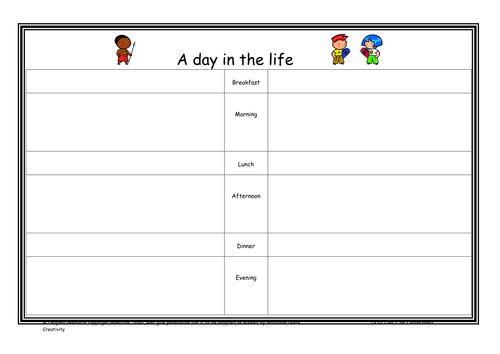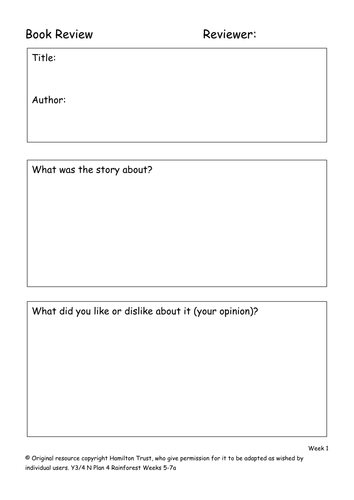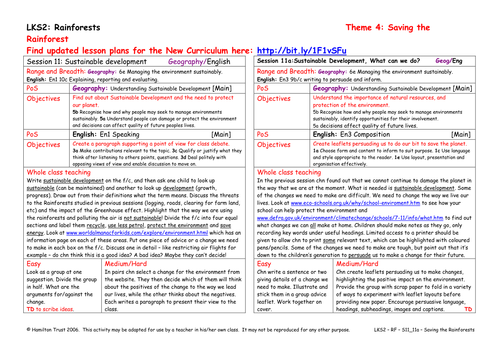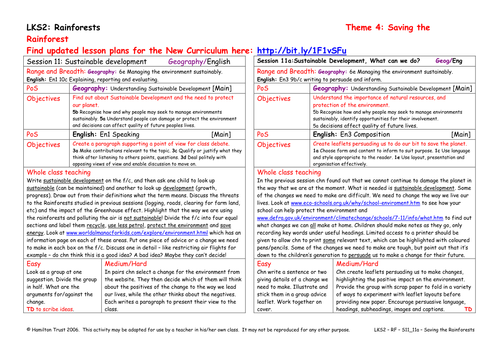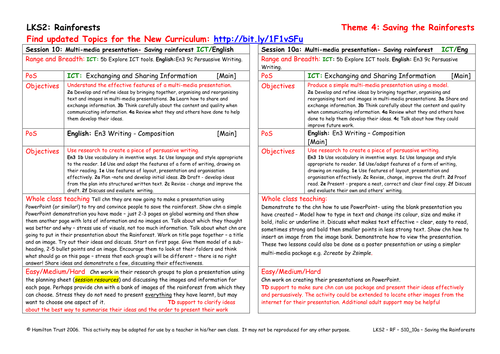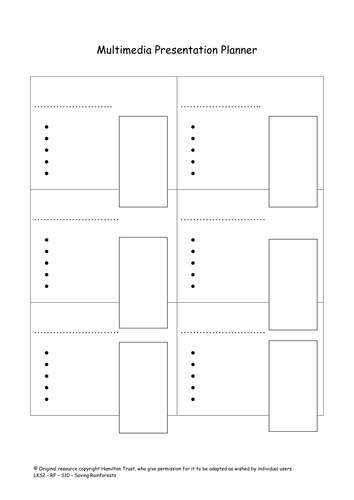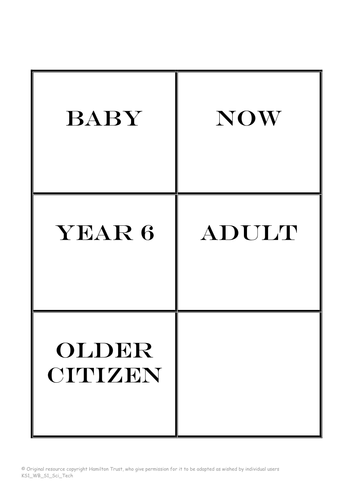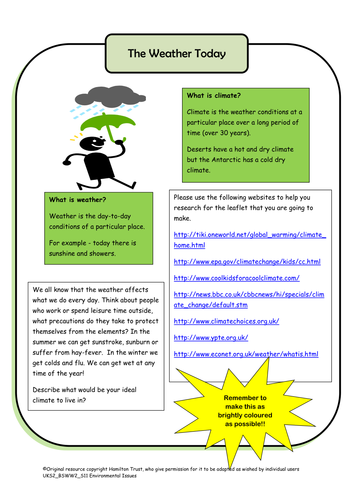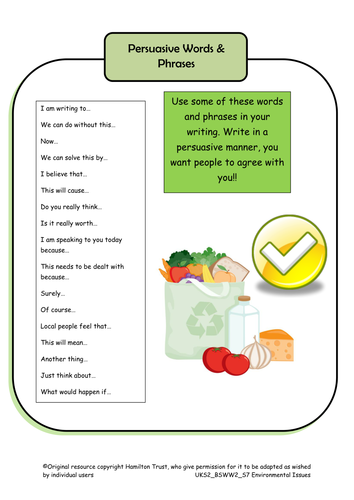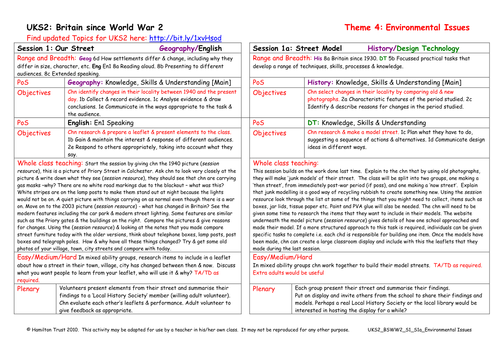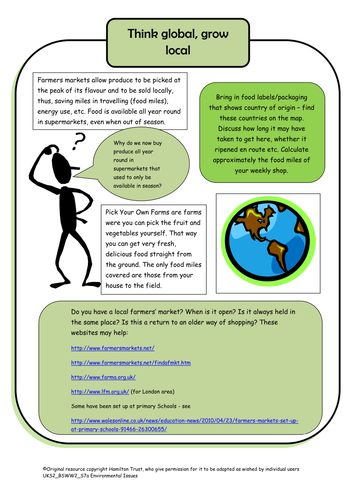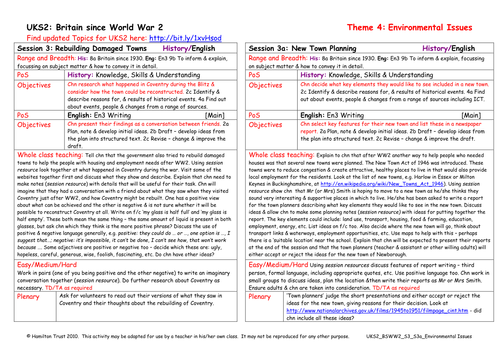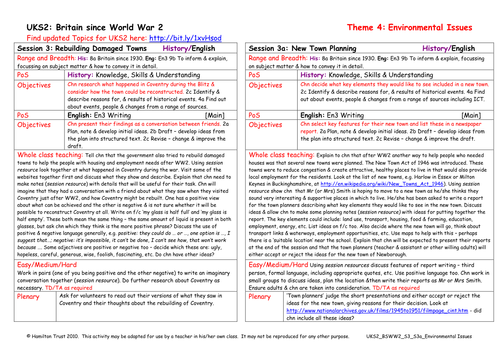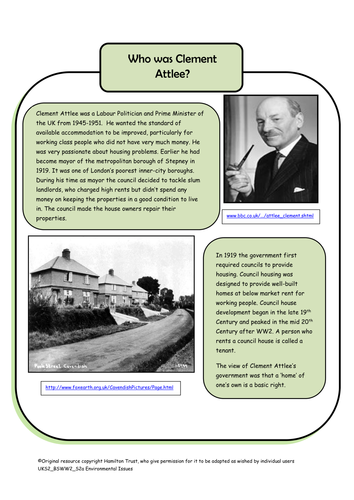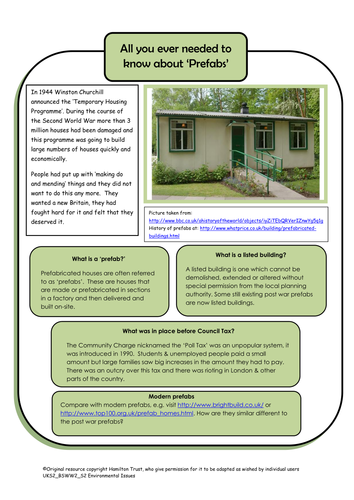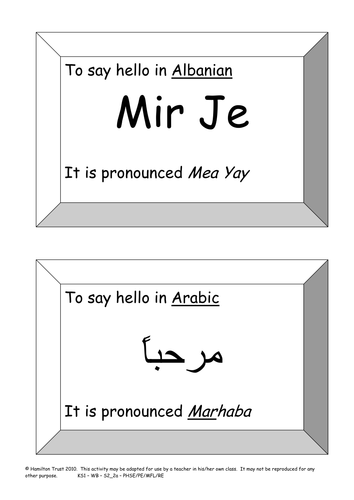
397Uploads
10037k+Views
11642k+Downloads
English

A day in the life! Rainforest Diaries
Your lunch is what you find to eat in the rainforest, not the contents of mum’s packed lunch! But there are other important differences too!
Children use their notes from the previous session to compare their lives to those of children in the Jungle.

Myths and Traditional Tales Weeks 5 - 7a
Find brilliant rainforest characters in ‘The Great Kapok Tree. Explore the language of traditional tales and write a rainforest ‘Just So’ story. Read a tale from Papua New Guinea. Make a board game as a lead in to writing a quest story.

Sustainable development - What can we do?
All talk no action...! Not in this session. Children use the internet to find out what else we can do before creating leaflets to persuade other children and adults to make the change!

Sustainable Development
The way we are damaging the planet we live on is not sustainable! Children find out about sustainable development and look at some of the changes that we need to make. Children think of both positives and negatives for these changes.

Multi-media presentation - Saving rainforest 2
Children complete their presentations started in Session 10, bringing together the information they have collected in previous weeks and images selected from the internet.
Children watch the presentations and give feedback to their peers.

Multi-media presentation - Saving rainforest
In this session children look at a multi media presentation prepared by you which has some good bits and some that need improving!
Children then use what they have learnt to plan and then start work on their own using notes from previous sessions.

Journey of Life
How have we changed since we were babies? How will we change as we grow up? Children explore these questions by thinking about the different stages of life and recording their thoughts in zig-zag books.

The Weather Today
Children learn the differences between weather and climate. Are we the cause of changes in the weather? What might we have done to make this happen? Children are given some websites to research and the activity is to produce a leaflet for younger children to explain this.

Shopping Bags
Food was bought locally and regularly in small shops after WW2. Assistants picked and weighed food for you, there was very little packaging as paper bags or your shopping basket were used. Children write a letter to persuade shops not to use plastic bags.

Selling Your Eco House
Estate agents are people who help us to sell our houses. Children will design an Estate Agents brochure to help them to sell their eco house. Discuss the use of persuasive writing. Create three forms – brochure, newspaper ad and online brochure.

Not In My Back Yard
Discuss a proposed plan for creating wind energy. They are given time to research and prepare for a debate ‘Should 7,000 wind turbines be placed in and around the UK?’ In teams they will put forward their views backed up with evidence to support their case.

Our Street
Children look at streets around the school, houses, shops and street furniture. Compare today with the 1940s. Use old photos of home town/village or city as resources. Children produce a leaflet showing how their street has changed between then and now.

Effects of Human Land Use
Children read the description of a fictional tourist town, they consider the way the town is dependent upon the tourist industry that surrounds the Coral Lake.
A proposed new bylaw aims to change things – what effects will this have? Children hold a town meeting.

Erosion
Children consider the different types of erosion, water, wind, glacial, sea and soil.
In groups each with a different type of erosion children research for information and then draw cartoon strips explaining how the types of erosion occur.

Think Global, Grow Local
Discuss Farmers Markets and Pick Your Own food taking into consideration food miles, energy use, carbon footprint and produce. Calculate food miles involved in weekly shop (using labels and packaging from supermarkets). Children write an acrostic.

New Town Planning
Find out about the New Towns that were planned to help with housing shortages. Look at some examples. Children identify the key elements that they would like included in a new town, and then write a report for a new town planning committee.

Rebuilding Damaged Towns
After WW2 many towns that were badly damaged in the bombing needed to be re-built. Children research what happened in Coventry and consider what could be done to help re-build and re-construct the area. Present their findings as a conversation between friends.

Council Houses
Children recognise the need for affordable social housing. Groups discuss different forms of affordable housing – council houses, tower blocks, housing associations, prefabs.
Feedback to class with pros and cons and decide which would be most useful after a problem.

Prefabs
Children understand that millions of houses were destroyed during WW2 and they needed to be replaced. Houses were designed that were pre-fabricated. They were quick to build; thousands were put up in the 1940s/1950s. Children choose key info needed to sell a prefab.

Learning new ways to say Hello
Learn another circle game and then find out lots of different ways to say hello. Practice saying hello making good eye contact. Work as part of a group to make a ‘hello’ flag. Teach the new hello to the rest of the class.

